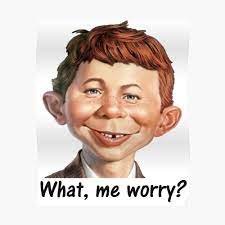tenant13
Full time employment: Posting here.
https://www.nytimes.com/2022/06/17/opinion/ezra-klein-podcast-rana-foroohar.html?
An interesting conversation with the financial journalist Rana Foroohar. It's a broad discussion about decades of financial macro policies, the current pivoting and possible future direction for US and the world. A few highlights for me:
There was a lot of inflation. It was just asset inflation. And we understand asset inflation as a boon, not as an economic problem.
This is definitely going to be the Asian century. We’re going to get cut out of that growth. And not because of anything that a U.S. policymakers have done but because the Chinese policymakers have decided they’re going to own their own supply chains. They call it the dual circulation economy but basically it’s about producing local for local
What we need is to make some decisions as a society to have an income-led economy rather than an asset bubble-led economy. [She brings up Germany as an example of such economy] In 10, 20, or 50 years America may look a lot more like an emerging market country because we didn’t make these decisions.
She does not say "this time it's different" although one can argue that predicting the end of neoliberalism and globalization is just that. Either way I think these are interesting opinions that are worth sharing and discussing.
An interesting conversation with the financial journalist Rana Foroohar. It's a broad discussion about decades of financial macro policies, the current pivoting and possible future direction for US and the world. A few highlights for me:
There was a lot of inflation. It was just asset inflation. And we understand asset inflation as a boon, not as an economic problem.
This is definitely going to be the Asian century. We’re going to get cut out of that growth. And not because of anything that a U.S. policymakers have done but because the Chinese policymakers have decided they’re going to own their own supply chains. They call it the dual circulation economy but basically it’s about producing local for local
What we need is to make some decisions as a society to have an income-led economy rather than an asset bubble-led economy. [She brings up Germany as an example of such economy] In 10, 20, or 50 years America may look a lot more like an emerging market country because we didn’t make these decisions.
She does not say "this time it's different" although one can argue that predicting the end of neoliberalism and globalization is just that. Either way I think these are interesting opinions that are worth sharing and discussing.



